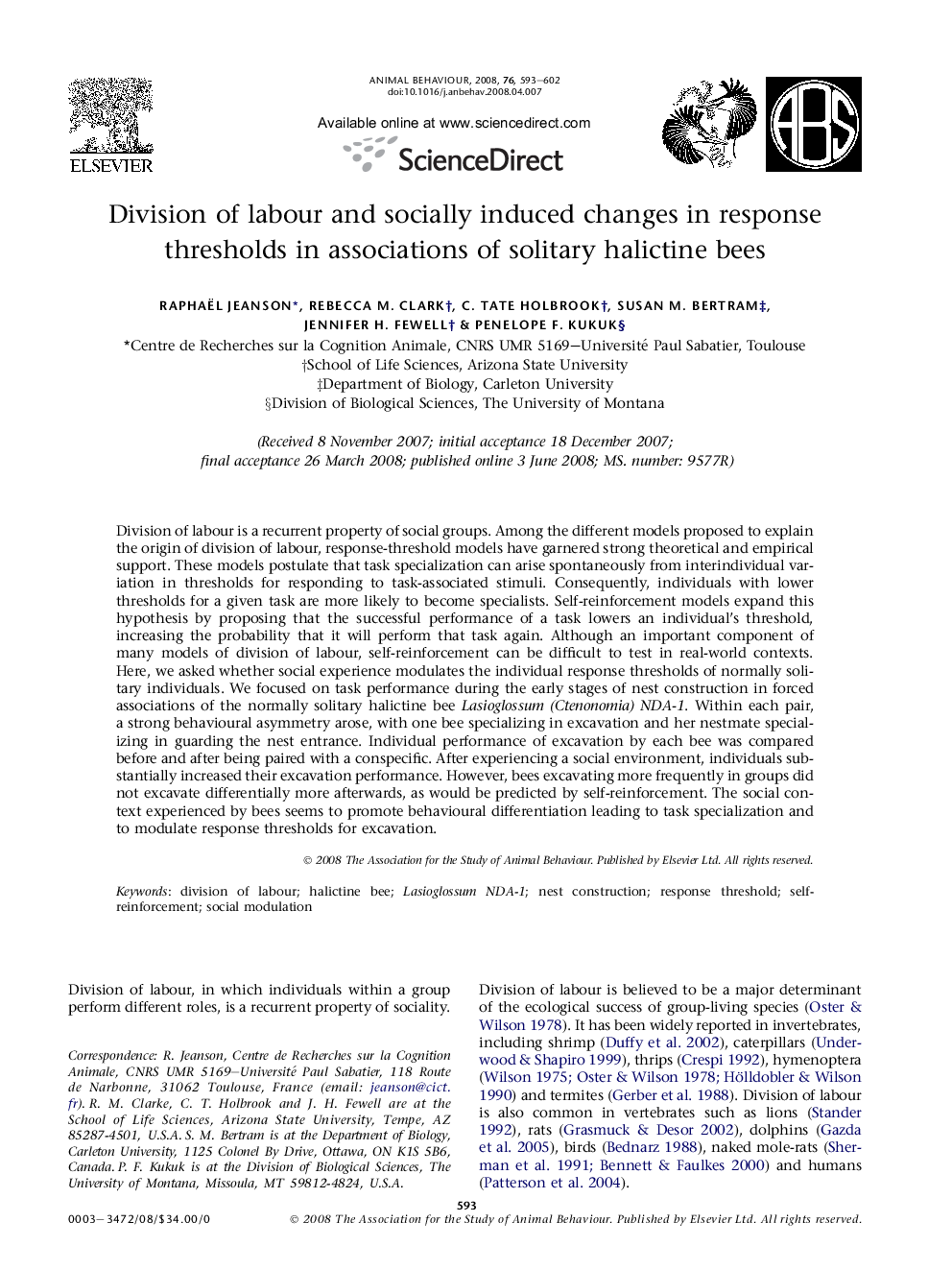| کد مقاله | کد نشریه | سال انتشار | مقاله انگلیسی | نسخه تمام متن |
|---|---|---|---|---|
| 2418805 | 1104358 | 2008 | 10 صفحه PDF | دانلود رایگان |

Division of labour is a recurrent property of social groups. Among the different models proposed to explain the origin of division of labour, response-threshold models have garnered strong theoretical and empirical support. These models postulate that task specialization can arise spontaneously from interindividual variation in thresholds for responding to task-associated stimuli. Consequently, individuals with lower thresholds for a given task are more likely to become specialists. Self-reinforcement models expand this hypothesis by proposing that the successful performance of a task lowers an individual's threshold, increasing the probability that it will perform that task again. Although an important component of many models of division of labour, self-reinforcement can be difficult to test in real-world contexts. Here, we asked whether social experience modulates the individual response thresholds of normally solitary individuals. We focused on task performance during the early stages of nest construction in forced associations of the normally solitary halictine bee Lasioglossum (Ctenonomia) NDA-1. Within each pair, a strong behavioural asymmetry arose, with one bee specializing in excavation and her nestmate specializing in guarding the nest entrance. Individual performance of excavation by each bee was compared before and after being paired with a conspecific. After experiencing a social environment, individuals substantially increased their excavation performance. However, bees excavating more frequently in groups did not excavate differentially more afterwards, as would be predicted by self-reinforcement. The social context experienced by bees seems to promote behavioural differentiation leading to task specialization and to modulate response thresholds for excavation.
Journal: Animal Behaviour - Volume 76, Issue 3, September 2008, Pages 593–602